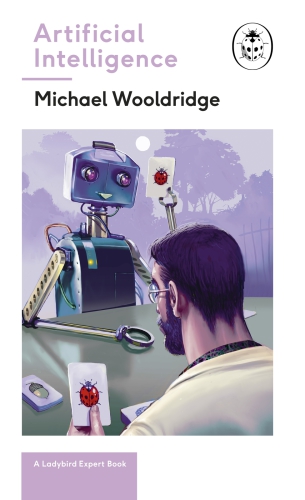

Most ebook files are in PDF format, so you can easily read them using various software such as Foxit Reader or directly on the Google Chrome browser.
Some ebook files are released by publishers in other formats such as .awz, .mobi, .epub, .fb2, etc. You may need to install specific software to read these formats on mobile/PC, such as Calibre.
Please read the tutorial at this link: https://ebookbell.com/faq
We offer FREE conversion to the popular formats you request; however, this may take some time. Therefore, right after payment, please email us, and we will try to provide the service as quickly as possible.
For some exceptional file formats or broken links (if any), please refrain from opening any disputes. Instead, email us first, and we will try to assist within a maximum of 6 hours.
EbookBell Team

5.0
68 reviews'I propose to consider the question, 'Can machines think?' Alan Turing (1950)
Part of the ALL-NEW Ladybird Expert series.
This book is for everyone living in the age of Artificial Intelligence. And this is an accessible and authoritative introduction to one of the most important conversations of our time . . .
Written by computer scientist Michael Wooldridge, Artificial Intelligence chronicles the development of intelligent machines, from Turing's dream of machines that think, to today's digital assistants like Siri and Alexa.
AI is not something that awaits us in the future. Inside you'll learn how we have come to rely on embedded AI software and what a world of ubiquitous AI might look like.
What's inside?
For an adult readership, the Ladybird Expert series is produced in the same iconic small hardback format pioneered by the original Ladybirds. Each beautifully illustrated book features the first new illustrations produced in the original Ladybird style for nearly forty years.
**
About the AuthorMichael Wooldridge is a Professor of Computer Science and Head of the Department of Computer Science at the University of Oxford, where he is a Fellow of Hertford College. He has been an AI researcher since 1989, and has published more than 350 scientific articles on the subject. He is a Fellow of the Association for Computing Machinery (ACM), the Association for the Advancement of AI (AAAI) and the European Association for AI (EurAI). From 2014 to 2016, he was President of the European Association for AI, and from 2015 to 2017 he was President of the International Joint Conference on AI (IJCAI). He lives in Oxford with his wife and two children.